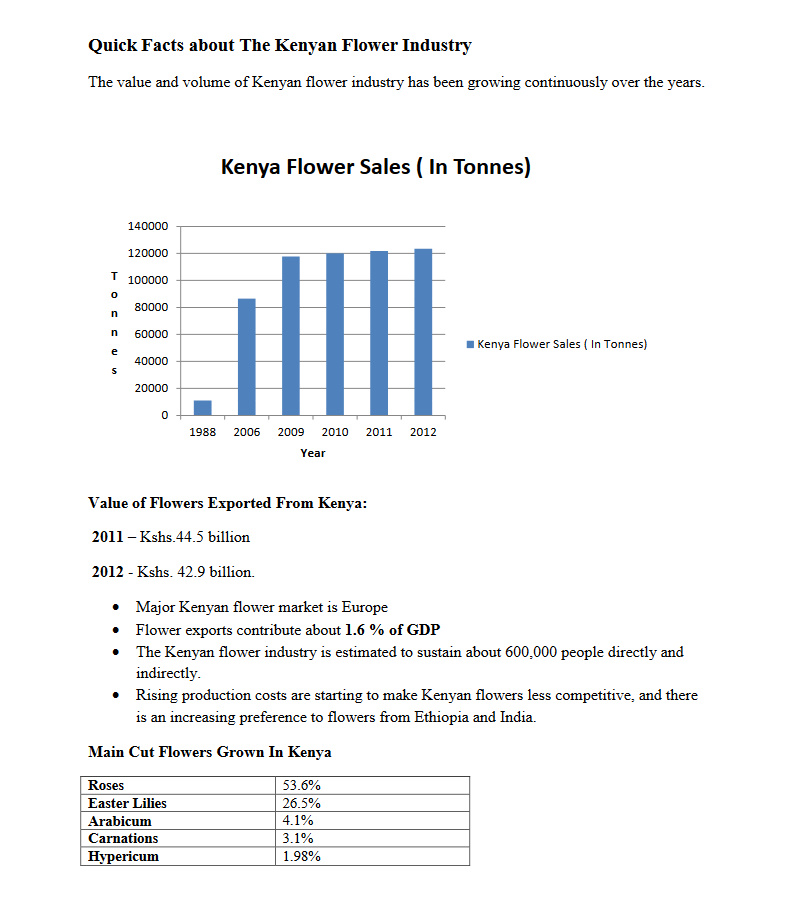Flower Business Plan
Flower Business Plan

Flower Business Plan Overview
This is a Flower Business Plan to the standard Flower Business.
The value and volume of Kenyan flower industry has been growing continuously over the years. The Kenyan flower industry is estimated to sustain about 600,000 people directly and indirectly.
The value of the Kenyan domestic flower market is not well documented. This is because the major flower firms don’t put much emphasis on the domestic market and any sales they make locally are considered miscellaneous. The Kenya Flower Council does not have actual statistics of the value of flowers that end up in the domestic market. However estimates by the council and data from a number of individual farms approximate only about 5 % of flowers produced in Kenya find their way to the domestic market.
The big farms consider the local market immature logistically and in terms of returns. Moreover there isn’t a developed flower culture in Kenya, with flowers being often bought on a one off as- need-be-basis.
Local prices are considered less attractive compared to those fetched in international markets. In addition there are flower farms that fear if they offload a majority of their produce locally they could lose some of the incentives that the government gives to flower exporters.
Small holder flower farms are more open to the local market. One of the reasons is the cash nature of the market, which can provide them with needed cash flow. Another is their struggle and capacity to meet stringent export conditions.
The smaller traders also want to maximize on their produce, and rather than throw away flowers which do not meet export specifications they sell to local traders. As will be seen a big percentage of flowers sold in the domestic market are not export quality, rather they are of a lower grade which can’t be sold in Europe.
In an effort to grow the domestic flower market the Kenyan Flower Council launched an initiative named Soko La Maua in 2007 whose main aim was to increase domestic consumption of flowers and brand Nairobi as a flower capital. This was by working with farms, vendors and members of the public.
Flower farm owners were to be encouraged to take the local market more seriously, for instance by selling export quality flowers and not discards in the local market. Also small scale farmers were to be encouraged to grow flowers focusing on the local market with the same vigor they give the international market. Vendors were to be trained on marketing and the art of flowers, while the public were to be persuaded to appreciate various ways they could use flowers for aesthetics, entertainment or to express emotions.
The campaign started well with vendors trained and attending flower exhibitions and some small scale farmers selling export quality flowers to local vendors. Additionally the then city council committed itself to building a cold storage and allow vendors to set up tents and tables along the city streets from which to sell flowers, at least once a week.
At the moment the domestic flower market is growing more out of organic efforts driven by the pursuit of business opportunities and changing lifestyle. There are also competing organizations of different sizes and backgrounds that provide a big base for potential customers. The diversity ensures there is a pool of customers big enough to profitably` sustain a florist.
Download Flower Business Plan / guide here